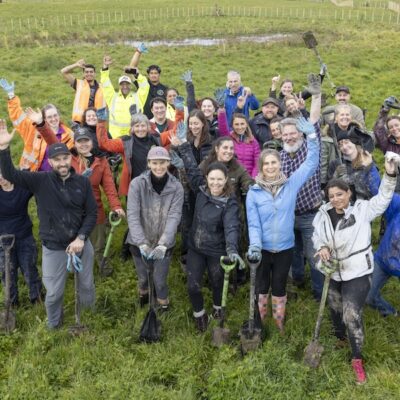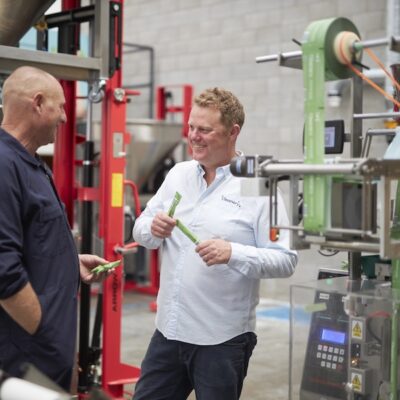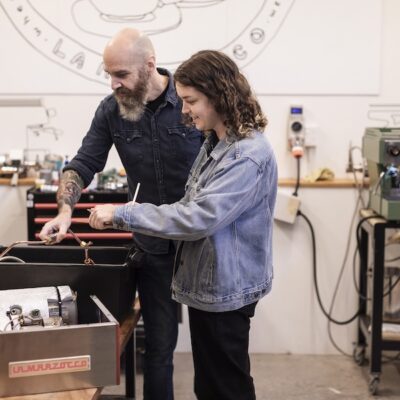The business of addressing our housing crisis
Sustainable and ethical business champion MOTIF has released a powerful research report on how to address New Zealand’s systemic housing crisis. How We Live – Creating Housing That Puts People and […]
Sustainable and ethical business champion MOTIF has released a powerful research report on how to address New Zealand’s systemic housing crisis.
How We Live – Creating Housing That Puts People and the Planet First was commissioned by the PIF Foundation, and represents a co-created response to concern for Aotearoa’s housing ecosystem after the COVID-19 crisis.
The report was developed over the past 12 months in response to the unprecedented levels of concern about the state of our housing, says James Bushell, co-founder of MOTIF and the report’s co-author.
“We’ve found that Aotearoa New Zealand’s housing crisis is less about buildings and more about the way we think about wealth, community, ourselves, our neighbours, the economy, the education system, and much more.
“Housing is a complex issue; it won’t be solved by simply building more substandard housing, introducing new regulations, or changing interest rates. We all need to contribute our diverse skills and diverse perspectives to the cause – particularly Aotearoa’s SMEs.
“In mid-2020, Sharon Bryant (impact investor, company director and founder of philanthropic charitable trust The PIF Foundation) and I were chatting about land in Whanganui,” explains Bushell. “She was asking herself a simple question: ‘How can I develop housing on this land without contributing to the significant challenges we currently have?’
“Soon after, The PIF Foundation commissioned us to take on the challenge.
“MOTIF is a catalyst for action, enabling businesses to work in new ways to create a more equitable and sustainable world. Our core belief is that by creating and fostering a new way of doing business, we can begin to address the inequities in our society and the harm we are doing to our planet,” says Bushell.
“How We Live opened my eyes to housing as a central point for many of the challenges we face as a society – from unaffordability, shelter, and security to public health. At the same time, housing was not my area of expertise, so I reached out to a recent collaborator, Ben Preston, to lead the report project.”
Preston had arrived in New Zealand in February 2019 as part of the Edmund Hilary Fellowships (EHF). “The challenge in finding a suitable home was the first indication something was amiss in the way we build and live in Aotearoa,” he recalls.
“Shortly after settling in Auckland, I led development of the New Zealand Green Building Council (NZGBC). Through the Net Zero Carbon Roadmap I had the chance to hear from folks in the housing sector in workshops from Auckland to Dunedin. I gained a sense of what wasn’t working in the housing industry, what could potentially work, and many largely untested ideas for easing the housing crisis.”
The following nine-months was a journey of discovery, says Preston, interviewing and holding workshops with a range of people within the housing ecosystem and those working to change it through innovative business practices.
No one-size-fits-all solution
What excites Bushell and Preston the most about housing and community work is that “it sits at the intersection of just about every challenge contemporary society faces”.
Land-use and biodiversity loss; social equity and justice; indigenous rights and decolonisation; the health and effectiveness of our supply chains and economy; the relationship between Government spending and actual value delivered to society; public health and welfare; psychological and spiritual well-being; our sense of belonging; energy security; material use and waste… The list goes on, they say.
The co-authors believe that there is no single, one-size-fits-all solution to the housing crisis, and the only experts are the communities affected by the crisis. Only they understand the unique way the crisis shows up in their lives and the needs of their community and environment.
“What we need is an empowered small and medium-sized business community led by the place-based ingenuity of local individuals and communities to drive innovation and market change in our communities throughout New Zealand,” says Bushell.
“The current approach in Aotearoa often favours large-scale, corporate, and Government-level change. That has its place, but this country is founded on local-first, “number-8 wire” ingenuity that allows communities to take charge on resolving their own challenges.”
Contributing businesses
The community of businesses contributing to How We Live – including MOTIF, The PIF Foundation, The Urban Advisory, Venture Centre NZ, Frank Advice, Sense Partners, Lever Room and The Housing Innovation Society, plus individuals like Jade Kake and Robin Allison – are committed to supporting a local-first approach to innovating out of this crisis.
“Our businesses are crucial in helping address the issues we have identified in the report,” says Preston.
“Our vision is that in 2030, all New Zealanders live in communities they feel connected to and are deeply connected to the land and natural environment which supports them.
“Very soon, we are releasing a practical guide – the How We Live Workbook. The guide allows those who want to take a different path to share their journey and learn from those already seeking out these new ways of living. It is a blueprint for bringing to life a Collective Housing project.
“What matters is how we respond as entrepreneurs and Kiwis and how we build on the great work already happening across the country.”
Photo above: Report co-authors James Bushell and Ben Preston.
Photo below: Waipatu papakāinga residents, Mareina Apatu, playing with her twins, Portlin and Taler Wilson. Photo by Josie McClutchie.






